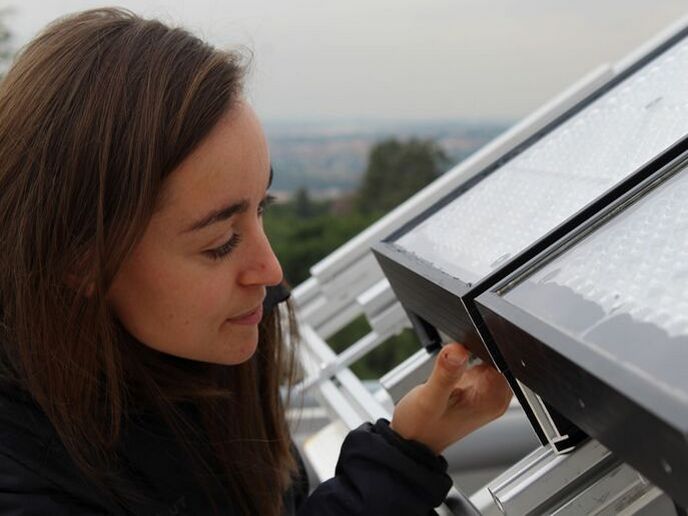Could open science help spark the photovoltaic generation?
Photovoltaic (PV) technology plays an important role in our transition from fossil fuels to more environmentally benign energy sources. As PV innovations touch many settings, from domestic to industrial, feedback about their design and implementation from a range of stakeholders could help hasten their wider adoption. The EU-supported GRECO (Fostering a Next Generation of European Photovoltaic Society through Open Science) project conducted a series of pilots to test how open science tools could shape the development of PV products. “Despite the principles of open science and responsible research and innovation being well established, and widespread recognition of their value, a gap remains between theory and practical implementation in the energy and engineering sectors,” explains Carlos del Cañizo, project coordinator.
Pilots and products
To understand the perceived barriers to integrating open science, GRECO worked with PV researchers in Brazil, Bulgaria, Germany, Portugal, Spain and the United Kingdom. The team found that many researchers did not view it as their responsibility, while others feared that intellectual property would be compromised, or were concerned about the extra workload. GRECO organised events with over 100 PV stakeholders – including installers, manufacturers, consumer groups and policy makers – to identify research priorities. Those cited include: technical and cost accessibility, high quality and efficiency, recyclability and low polluting, alongside adaptation to surroundings. GRECO’s pilots enabled the team to develop innovations that helped address some of these findings. In one pilot, working with PV system owners, the team developed ageing and degradation models, leading to in situ repairs aided by video tutorials. “This benefits the circular economy through less waste,” remarks Cañizo, from the Polytechnic University of Madrid in Spain, the project host. In another, irrigators using PVs in large-scale systems were asked to redefine initial research questions. The result was a new PV design (video in Spanish) for the powering of high-voltage pumps which SolaQua, a follow-up project, is further developing. To increase the adoption of PV in cities, GRECO worked on some specific product innovations. For example, GRECO tested a cell architecture, combining a perovskite cell with a silicon solar cell to produce a novel three-terminal device. The team also developed an advanced PV module based on the highly efficient ‘micro-concentration’ technology – currently being refined by project partner Insolight – in addition to a PV architecture to power heat pumps for air conditioning.
Integrating the best open science solution
For each workstream, GRECO identified the best open science approaches. For instance, with the technology readiness level (TRL) high for irrigation, open innovation was implemented. Whereas with a low TRL for solar cell technology, an open database was created to share perovskite information based on 44 000 published literature data points, crowdsourced by over 80 volunteers from 25 000 peer-reviewed papers. GRECO even started a citizen science initiative, creating an app and platform to collect and map data on global PV installations. Lessons from these pilot studies led to a practical guide to help researchers embed open science approaches. “Our bottom-up vision has already inspired researchers, and our practical guide has helped them make changes within their spheres of influence,” notes Cañizo. “While Generation Solar is basic, it demonstrates what could be achieved with the right resources,” says Cañizo, adding: “What is needed is a campaign which shows open science as a winning strategy for both science and society. This means changing researcher incentives from a focus on paper citations, to more collaborative metrics and we need to persuade citizens to stop considering themselves as passive consumers of technology, and instead as co-protagonists in the energy revolution.” The project results, including scientific papers, are also available through Zenodo.
Keywords
GRECO, solar, photovoltaic, irrigation, open science, energy



